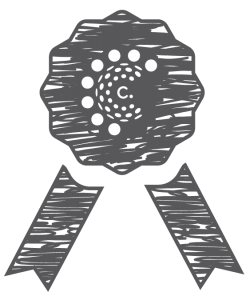 What is the Createquity Arts Research Prize?
What is the Createquity Arts Research Prize?
The Createquity Arts Research Prize was established to celebrate an arts research publication that dramatically expanded the collective knowledge of humanity in the prior year. The prize was a natural extension of Createquity’s systematic gathering and review of research in the arts and culture sector on an ongoing basis, as part of its mission to investigate the most important issues in the arts and what we can do about them. The first and only Createquity Arts Research Prize was awarded in 2017 to Mirae Kim for her publication “Characteristics of Civically Engaged Nonprofit Arts Organizations: The Results of a National Survey.” Kim received a cash award of $500.
Background
Every year, governments, foundations, universities, and scientists invest thousands of hours and millions of dollars generating research about critical issues in the arts. But according to a 2016 survey sponsored by the Hewlett and Knight Foundations, nearly 80% of arts administrators have difficulty keeping up with information in the field, and only 5% typically read research reports all the way through. With so many professionals lacking time to fully engage with research, and with no clear framework for how the findings can be used, a huge amount of potential and effort goes to waste.
In our decade of covering arts research, some of the most impressive efforts Createquity has come across have been virtually unknown or quickly forgotten beyond the small circle of people involved with executing the project. For all of this great work to break through to the public consciousness, we need to invest more resources in evaluating and generating discussion about the research that has already been produced. Until that happens, we risk letting crucial insights stay buried in long papers and technical journals that gather dust on the shelf or sit unopened in overflowing inboxes, as arts leaders have the same conversations year after year.
We believe there is much untapped potential in arts research. Our hope is that increasing the incentives to produce great work will inspire better, more relevant research for the benefit of all.
Elgibility
Arts research has no single well-defined silo in either higher education or the wider world; it has roots in many different academic disciplines and intellectual traditions, and can originate from a variety of sources. Here are some guidelines for what kinds of research we considered for the Prize:
- Our definition of “publications” is broad, and may include studies published in peer-reviewed journals, reports commissioned by foundations or government agencies, dissertations, self-published work, even in-depth blog posts.
- Submissions may originate from any country, but we are concentrating on English-language publications.
- The publication must be publicly available (behind a paywall is OK, but we must be able to access it through standard library subscriptions), and have been first published in the previous year.
- The work must either a) focus primarily on the arts, or b) be written with an arts audience in mind.
- Both theoretical and empirical work are eligible. Analyses may be qualitative or quantitative in nature, and may or may not involve original data collection.
- Generally speaking, we are interested in research on the arts that employs methods from the social sciences, broadly conceived—economics, psychology, sociology, etc.—as well as neuroscience and medical research. We are NOT looking for historical, biographical, or aesthetic analysis of a single artist’s or small group of artists’ work, or cultural criticism focusing on specific works of art.
How were potential prize winners evaluated?
Candidate publications for the Createquity Arts Research Prize were sourced both from Createquity’s internal research review process and from external nominations. We standardized our approach to processing and synthesizing research, and built a comprehensive database of arts research publications released in the previous year. To help fill in any gaps, we held an open call for nominations.
There were two rounds of evaluation. The first was conducted internally by Createquity’s editorial team using the following criteria:
- Relevance: the work has research goals that either 1) connect directly to Createquity’s interest in “the most important issues in the arts and what we can do about them,” or 2) facilitate essential knowledge infrastructure that helps make a broad range of research investigations possible.
- Rigor: the work uses methods that match up well with its research goals, and executes them without obvious flaws.
- Added Value: the work either 1) makes a unique contribution to the literature or 2) is designed explicitly to replicate previous work on an important and under-studied topic.
The top scoring studies from the first round were evaluated by an external panel representing some of the best research minds in the country. In the second round, we added the following criteria as potential tiebreakers: inventiveness, transparency, courage displayed in the choice of topic or approach, and the extent to which this prize would represent a significant opportunity for the author(s).
2017 Winner of the Createquity Arts Research Prize (research published in 2016):
“Characteristics of Civically Engaged Nonprofit Arts Organizations: The Results of a National Survey” by Mirae Kim